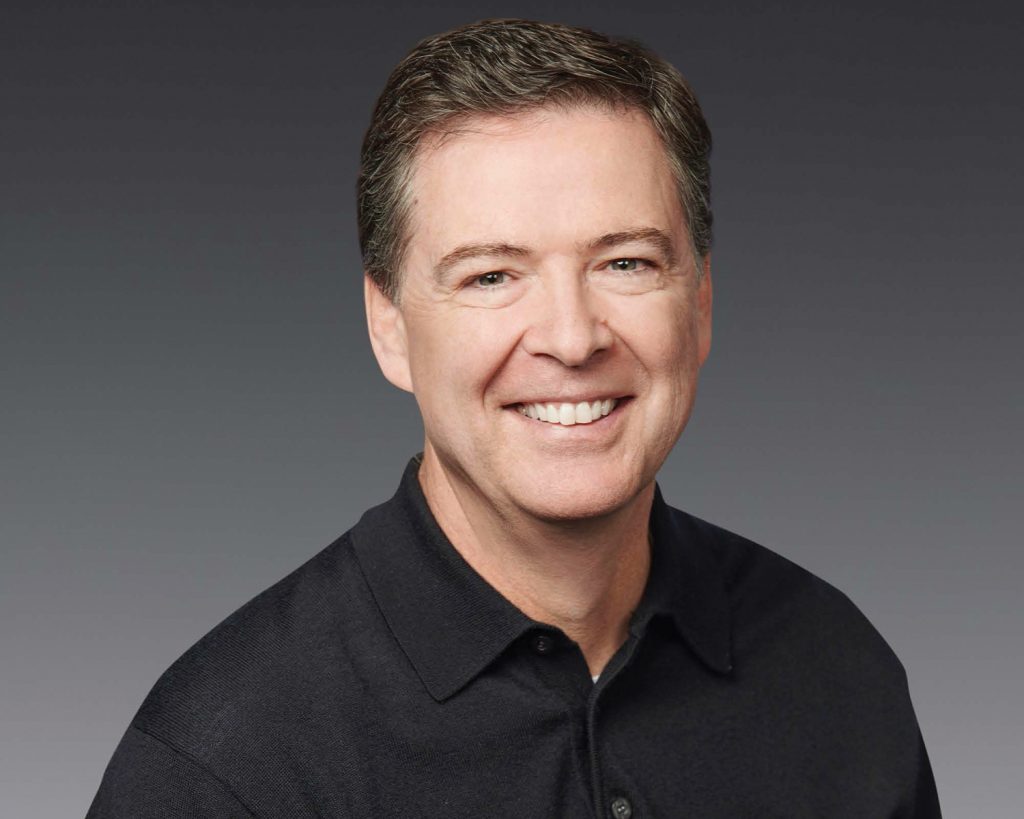Former FBI Director James Comey was at the helm of the FBI during some of the most tumultuous times in Washington, DC, in recent years. As the institution’s seventh director, Comey was leading the federal investigation into the Trump campaign’s alleged ties to Russia when he was fired by the Commander-in-Chief. The former federal prosecutor joined Law School Dean Vincent Rougeau and the Criminal Law Society last spring to discuss his new book, Saving Justice, his career, government service, and national security.
Vincent Rougeau: As our students are developing their legal expertise, what would you say to them about how they retain core aspects of their humanity, which really allow them to be effective?
James Comey: Understanding people is the key to being an effective advocate, counselor, friend, spouse—understanding that people are seeing the world and experiencing it differently than you are. And also realizing that we share a common experience and we’re all afraid. Every human being is afraid. Understanding that and trying to use it as an engine for the development of empathy, a sense of feeling and connection with other people, is also at the heart of being an effective advocate.
VR: How would you advise young lawyers to understand the domestic and foreign security threats that this country faces?
JC: The challenge and wonder of the internet are the same thing. The wonder is we’re all next-door neighbors. Beijing and Boston are separated by microseconds because information and video images, expressions of joy and sadness are moving at the speed of light. But the bad part is we’re all next-door neighbors. And so people who want to take everything that means anything to you are just as close to you as if they were in the next cubicle.
VR: How much geographic, ethnic, linguistic, and racial diversity did you see—or how much of a change did you see—during your time in the FBI? How would you think about those issues going forward for the FBI?
JC: I had assumed that after 9/11, we had attracted a broad spectrum of America to the work. But we hadn’t. The statistics shocked me. I wrote to the whole workforce and said: This is an emergency. This is a crisis. First of all, there’s a moral imperative. We have to attract more people of color, more women, to be part of this, but there’s also an effectiveness imperative. As the country grows more complicated, more diverse—in my view more wonderful—we have to be effective and have to look more like America. And so we set about to change the FBI in significant ways.
VR: You’ve spoken at length about pivotal moments and institutions like the FBI and the Department of Justice. Are we in the midst of another pivotal moment for these institutions?
JC: We are at an inflection point, a point where we’re going to see extraordinary growth. There’s no deep state, but there are deep values that go into bedrock. Apolitical non-partisan law enforcement is written on the hearts of everybody who works there. They don’t want to be part of anybody’s political tribe. They haven’t changed [during] the four years of the Trump administration. They’ll be unlocked pretty quickly and talent will flow back to the extent that people left. The harder part of the inflection point is going to be to lead Americans out of the fog. And so the mission for the new president and for the new leaders of the Department of Justice is to help people escape that fog, to show them what empathetic, competent, honest leadership looks like.



